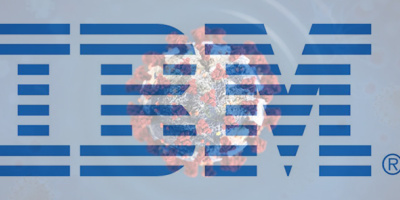Thirty years ago, when I was probably already as old as a few readers of this column, I believed that by now none of us would be working more than 10 hours a week. Still, I thought that we--and by "we" I mean all of humanity, developed and developing countries alike--would be leading happy, productive, and prosperous lives, keeping active through world travel, hobbies, sports, and the study of topics of intense interest to us rather than just necessary for our jobs. In short, I believed that we would now be spending most of our lives pursuing our interests rather than those of our employers.
I was convinced that we would be able to afford these pleasures with the expenditure of little labor on our part by using computers and robots to produce the goods and services that underlie our wealth. I was also certain that these uncomplaining, silicon-brain slaves would, by now, be undertaking all of the menial housework and manual chores that we then did (or, in my case, would have done if I wasn't such a slob). Could I have been a bigger idiot?
Today, in this great and glorious information age, when there is a PC on every desk--not to mention on several kitchen tables and laps as well--and there are huge networks behind them, many people are working longer and harder than ever. Worse, even when they are not "at work," they are still chained to their jobs.
In March of 2004, Avaya Inc., a communications networking firm, surveyed about 300 IT professionals and found that 85% remain accessible to coworkers during nights, weekends, and vacations; 76% regularly retrieve messages during their "time off"; 61% work more hours because of communication technologies that allow them to work away from the office; 54% sometimes feel overwhelmed by pervasive communications and, of those, 93% said that it had a negative effect on their quality of life.
People, people, people, this is not the way it was supposed to happen, at least not in my dream. Technology was supposed to set us free, but who is now the slave, and what is now the enslaver? Somehow, we got it backward.
It is not a vacation if you check your email constantly. It is not a social occasion if you are continually engaged on your cell phone talking to your boss or employees about work-related problems. It's not quality time with your family if you spend all of it messaging on your BlackBerry. When people tell you to "get a life," they usually don't mean a business life.
You say that technology offers great benefits to humanity? Well, yes, often it does, but certainly not always. I cannot imagine that there is anyone who does not believe that the following increasingly common scene is a ludicrous giant leap backward in human relationships: You are in a coffee shop. Two people are at the table next to you. Both of them are endlessly yapping away on cell phones to two other people located somewhere across the ether. Why the heck did those two bother to come all the way to the coffee shop to get together if they were going to totally ignore each other while they spend the entire time talking separately to other people who aren't there?
I would like to propose a new rule for the game of human communications: The friend sitting across from you always trumps someone calling on your cell phone.
I was not conscious of it happening, but, looking back on some of my past tirades ("Demon Email," "Text Non-Communication," "IM: Instant Madness," "Digital Dialing for Dollars"), I realize that human communication technologies (is that an oxymoron, "human communication technologies"?) seem to have become a pet peeve of mine. True, technology has greatly expanded the quantity of our communications, but has it improved the quality? I think not.
I probably miss more important emails than I see as they are either discarded by my spam filter or I skim too quickly over them as I work my way through the many dozens of spam emails that make it past the filter. Telephone text messaging forces us to communicate using a totally inappropriate input device. Instant messaging rewards speed at the expense of thought. Telemarketers have made me reluctant to answer my telephone. And cell phones mean that we are constantly in touch with everyone except the person sitting next to us. Where will it all end?
I know that I sound like a modern-day Luddite. I am not. I am a strong believer in technology and its potential to improve our lives (reread the vision described in the opening paragraphs). Over the years, I've made the majority of my living either developing business software or marketing technology. I'd be a major hypocrite if I denigrated technology in its entirety. It's just that I think that we have to take greater care to ensure that we control the technology, not the other way around.
It is time to fight back. Your time is your time. Vacations, weekends, and evenings are supposed to be time away from work. Technology shouldn't be used to change that. The revolution starts now. Or, at least, if you want me to lead it, the revolution will start as soon as I complete this column. It is ten o'clock Sunday night, and I want to finish keying this in so that I can do some Web surfing before my vacation ends and I have to get back to work.
Joel Klebanoff is a consultant, a writer, and president of Klebanoff Associates, Inc., a Toronto, Canada-based marketing communications firm. Joel has 25 years experience working in IT, first as a programmer/analyst and then as a marketer. He holds a Bachelor of Science in computer science and an MBA, both from the University of Toronto. Contact Joel at
























 More than ever, there is a demand for IT to deliver innovation. Your IBM i has been an essential part of your business operations for years. However, your organization may struggle to maintain the current system and implement new projects. The thousands of customers we've worked with and surveyed state that expectations regarding the digital footprint and vision of the company are not aligned with the current IT environment.
More than ever, there is a demand for IT to deliver innovation. Your IBM i has been an essential part of your business operations for years. However, your organization may struggle to maintain the current system and implement new projects. The thousands of customers we've worked with and surveyed state that expectations regarding the digital footprint and vision of the company are not aligned with the current IT environment. TRY the one package that solves all your document design and printing challenges on all your platforms. Produce bar code labels, electronic forms, ad hoc reports, and RFID tags – without programming! MarkMagic is the only document design and print solution that combines report writing, WYSIWYG label and forms design, and conditional printing in one integrated product. Make sure your data survives when catastrophe hits. Request your trial now! Request Now.
TRY the one package that solves all your document design and printing challenges on all your platforms. Produce bar code labels, electronic forms, ad hoc reports, and RFID tags – without programming! MarkMagic is the only document design and print solution that combines report writing, WYSIWYG label and forms design, and conditional printing in one integrated product. Make sure your data survives when catastrophe hits. Request your trial now! Request Now. Forms of ransomware has been around for over 30 years, and with more and more organizations suffering attacks each year, it continues to endure. What has made ransomware such a durable threat and what is the best way to combat it? In order to prevent ransomware, organizations must first understand how it works.
Forms of ransomware has been around for over 30 years, and with more and more organizations suffering attacks each year, it continues to endure. What has made ransomware such a durable threat and what is the best way to combat it? In order to prevent ransomware, organizations must first understand how it works. Disaster protection is vital to every business. Yet, it often consists of patched together procedures that are prone to error. From automatic backups to data encryption to media management, Robot automates the routine (yet often complex) tasks of iSeries backup and recovery, saving you time and money and making the process safer and more reliable. Automate your backups with the Robot Backup and Recovery Solution. Key features include:
Disaster protection is vital to every business. Yet, it often consists of patched together procedures that are prone to error. From automatic backups to data encryption to media management, Robot automates the routine (yet often complex) tasks of iSeries backup and recovery, saving you time and money and making the process safer and more reliable. Automate your backups with the Robot Backup and Recovery Solution. Key features include: Business users want new applications now. Market and regulatory pressures require faster application updates and delivery into production. Your IBM i developers may be approaching retirement, and you see no sure way to fill their positions with experienced developers. In addition, you may be caught between maintaining your existing applications and the uncertainty of moving to something new.
Business users want new applications now. Market and regulatory pressures require faster application updates and delivery into production. Your IBM i developers may be approaching retirement, and you see no sure way to fill their positions with experienced developers. In addition, you may be caught between maintaining your existing applications and the uncertainty of moving to something new. IT managers hoping to find new IBM i talent are discovering that the pool of experienced RPG programmers and operators or administrators with intimate knowledge of the operating system and the applications that run on it is small. This begs the question: How will you manage the platform that supports such a big part of your business? This guide offers strategies and software suggestions to help you plan IT staffing and resources and smooth the transition after your AS/400 talent retires. Read on to learn:
IT managers hoping to find new IBM i talent are discovering that the pool of experienced RPG programmers and operators or administrators with intimate knowledge of the operating system and the applications that run on it is small. This begs the question: How will you manage the platform that supports such a big part of your business? This guide offers strategies and software suggestions to help you plan IT staffing and resources and smooth the transition after your AS/400 talent retires. Read on to learn:
LATEST COMMENTS
MC Press Online